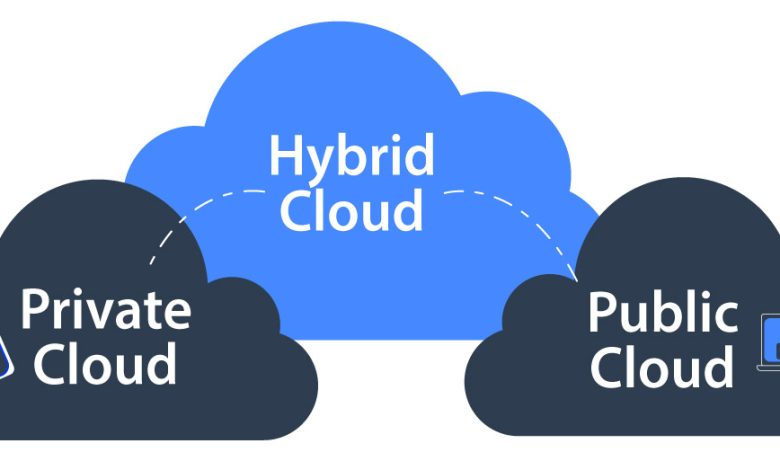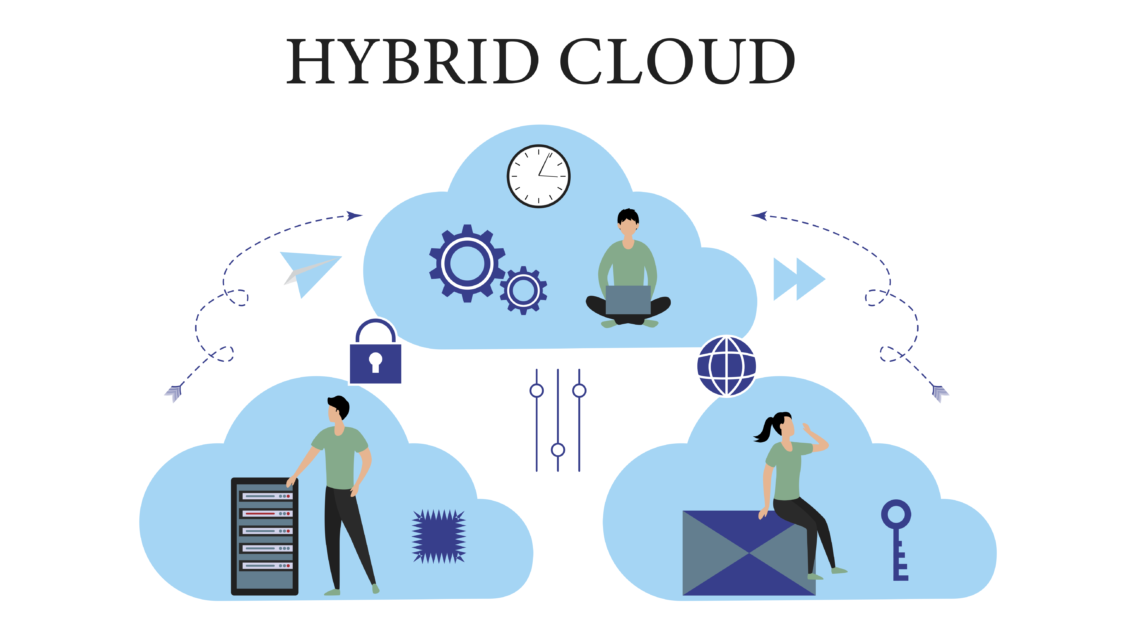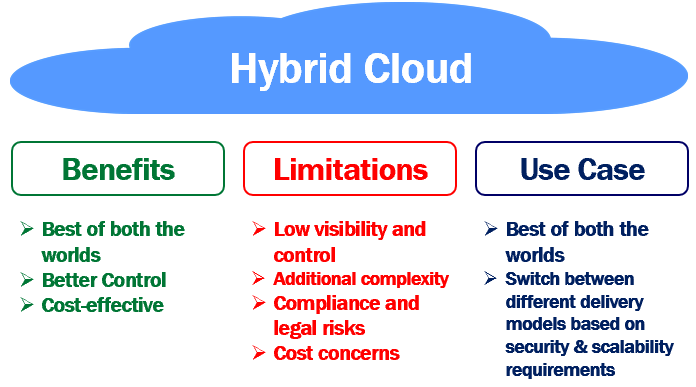The Hybrid Cloud Advantage

What is Hybrid Cloud?
Hybrid cloud is a computing environment that combines public and private cloud resources. Businesses can access the flexibility of public cloud and the security of private cloud. This model allows companies to manage sensitive data on private servers while using public cloud resources for non-sensitive tasks. Hybrid cloud offers a unique balance between control and scalability, making it a popular choice for modern businesses.
With hybrid cloud, organizations can customize their infrastructure. They can run applications and store data based on specific needs. This flexibility enables companies to optimize resources, reduce costs, and enhance security. Let’s explore the benefits of hybrid cloud in detail.
Flexibility and Scalability
One of the main benefits of hybrid cloud is its flexibility. Companies can scale resources up or down based on demand. For instance, if a business experiences a sudden spike in web traffic, it can quickly access additional public cloud resources. Once demand decreases, the company can scale back, saving on costs.
In a hybrid environment, organizations aren’t limited to one solution. They can choose the best combination of public and private cloud services. This approach is especially useful for companies with varying workloads. Hybrid cloud lets them meet high demands without over-investing in on-premises infrastructure.

Improved Security and Compliance
Data security is a major concern for businesses. Many organizations handle sensitive information, such as financial records or customer details. With hybrid cloud, companies can keep this data in private environments. This adds an extra layer of protection, reducing the risk of unauthorized access.
Compliance is also easier to manage in a hybrid setup. Many industries have strict regulations for data handling, storage, and privacy. Hybrid cloud allows companies to store regulated data on private servers while still benefiting from the public cloud’s scalability. This helps businesses comply with industry standards while leveraging cloud technology.
Cost Efficiency
Cost savings are a significant advantage of the hybrid cloud. Businesses can avoid large investments in on-premises infrastructure. Instead, they pay for public cloud resources on a pay-as-you-go basis. This model reduces upfront costs and allows companies to invest more strategically.
In a traditional IT setup, companies often need to over-provision resources to handle peak loads. This can be expensive, especially for small and medium-sized businesses. With hybrid cloud, companies only pay for what they use. This approach not only saves money but also minimizes resource waste.
Enhanced Performance
Hybrid cloud allows businesses to run applications where they perform best. For example, mission-critical applications can run on private servers, where performance and reliability are prioritized. Less critical applications can be hosted in the public cloud to benefit from its scalability.
This approach ensures that companies can maintain high performance even during peak times. Additionally, hybrid cloud enables data processing closer to the source, which reduces latency. Improved performance is essential for industries that rely on real-time data, such as finance, healthcare, and manufacturing.
Simplified Workload Management
In a hybrid cloud environment, companies have more control over workload distribution. They can decide where to run applications based on factors like cost, performance, and security. This level of control simplifies workload management and allows for better allocation of resources.
For instance, companies can use private cloud for core business applications, while using public cloud for testing and development. This separation ensures efficient use of resources and reduces the risk of downtime. Hybrid cloud also supports containerization, which makes it easier to move applications between environments.
Disaster Recovery and Business Continuity
Hybrid cloud is a powerful tool for disaster recovery. By using both public and private resources, companies can create reliable backup and recovery plans. In case of a system failure, businesses can quickly switch to a backup environment in the public cloud. This reduces downtime and helps maintain business continuity.
Disaster recovery in hybrid cloud is often faster and more cost-effective than traditional methods. Companies can replicate their data across multiple locations, ensuring that they’re prepared for unexpected events. This setup minimizes data loss and allows for seamless recovery, even in the face of a disaster.
Innovation and Speed to Market
Hybrid cloud enables faster innovation. By leveraging the scalability of the public cloud, companies can quickly develop and test new applications. This flexibility accelerates the development process and reduces time to market.
Businesses can take advantage of public cloud resources for development, then transition applications to private servers for production. This setup allows for faster testing, prototyping, and deployment. Hybrid cloud also enables companies to integrate new technologies more easily, such as AI, machine learning, and data analytics.
Customization for Specific Needs
Hybrid cloud provides a tailored solution for businesses with unique requirements. Companies can mix and match resources based on their specific needs, whether it’s compliance, performance, or cost. This customization makes hybrid cloud ideal for industries with diverse workloads and regulatory challenges.
For instance, healthcare organizations can store patient data on private servers to comply with regulations, while using the public cloud for analytics. This approach ensures both compliance and efficiency, allowing businesses to use the right resources for the right tasks.

Reduced Vendor Lock-In
Vendor lock-in is a common concern in cloud computing. With hybrid cloud, businesses have more control over their infrastructure and can avoid reliance on a single provider. This flexibility reduces the risk of vendor lock-in and allows companies to switch providers if needed.
Hybrid cloud environments are often built on open standards, making it easier to integrate with different providers. This flexibility is crucial for businesses that want to maintain control over their data and infrastructure.
Future-Proofing Your Business
Technology is constantly evolving. Hybrid cloud offers the flexibility needed to adapt to these changes. By combining public and private cloud resources, companies can adjust their strategies as technology advances.
For example, if a new technology emerges, businesses can integrate it into their hybrid setup without overhauling their infrastructure. Hybrid cloud provides a long-term solution that adapts to changing demands, ensuring that companies stay competitive and future-proof.
Challenges of Hybrid Cloud
While hybrid cloud has many benefits, it’s not without challenges. Managing a hybrid environment requires specialized skills. IT teams need to understand both public and private cloud architecture, as well as how to integrate the two.
Data security can also be complex. Businesses need to ensure that data is protected across multiple environments. Managing compliance across both public and private clouds can be challenging, especially in highly regulated industries.
Despite these challenges, the benefits of hybrid cloud often outweigh the downsides. With proper planning and expertise, companies can overcome these obstacles and fully leverage the hybrid cloud advantage.
Is Hybrid Cloud Right for Your Business?
Hybrid cloud is a powerful solution, but it’s not for everyone. Small businesses with simple workloads may find public cloud sufficient. However, larger organizations or those with complex data needs can benefit from a hybrid approach.
Industries like finance, healthcare, and retail often choose hybrid cloud due to regulatory requirements and high-performance needs. If your business requires flexibility, scalability, and control, hybrid cloud could be the ideal choice.
Conclusion: The Hybrid Cloud Advantage
Hybrid cloud offers a unique blend of scalability, security, and cost-efficiency. By combining public and private resources, businesses can create a flexible infrastructure that meets their needs. The advantages of hybrid cloud are clear: improved performance, enhanced security, and reduced costs.
For organizations that need both control and flexibility, hybrid cloud is a smart choice. It empowers businesses to adapt to changing demands, innovate faster, and remain competitive. As technology continues to evolve, hybrid cloud provides a future-proof solution that can grow with your business.




